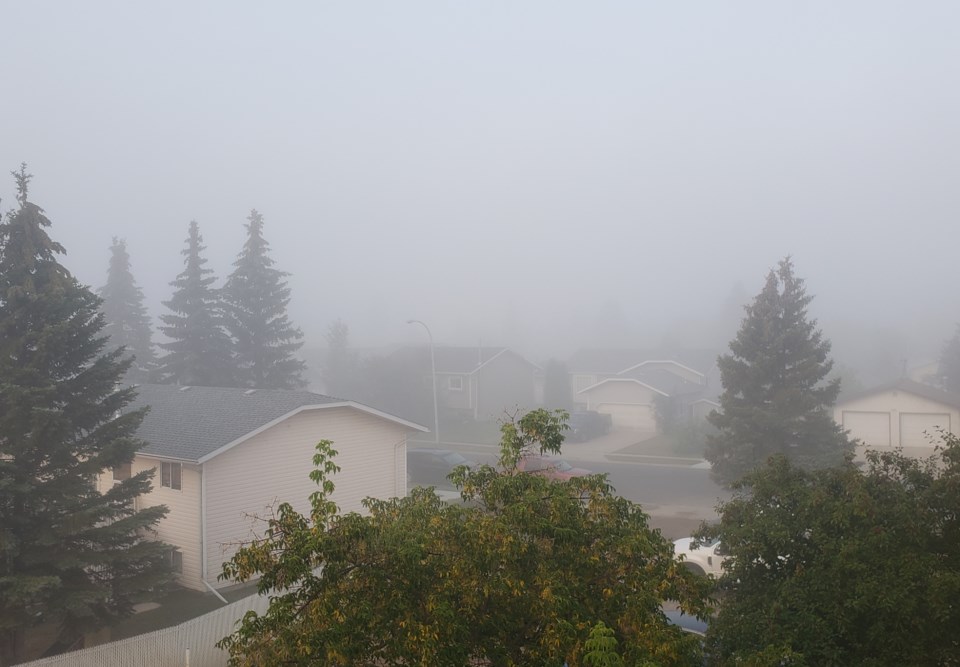LAKELAND – Environment Canada has issued an Air Quality Alert that impacts most of the Lakeland Region, as thick smoke moves through the region.
An alert issued at 4:37 a.m. Monday morning extends from Lac La Biche County to Cold Lake, Bonnyville through to Smoky Lake and included the County of St. Paul.
The arrival of the thick smoke is attributed to wildfires and is resulting in poor air quality.
While Environment Canada does not state which wildfires are the suspected source of the smoke moving into the area, as of Aug. 22, there are 54 active wildfires in Alberta. This is according to Alberta Agriculture and Forestry.
There are also 192 wildfires in B.C., with 69 new fires being reported in the last two days alone.
A large portion of the wildfires in Alberta are located in the northeast region of the province, along the Saskatchewan border and Northwest Territories border.
“Some areas in the vicinity of the fires could see smoke persist for the next few days,” states Environment Canada. “Air quality and visibility due to wildfire smoke can fluctuate over short distances and can vary considerably from hour to hour.”
People may experience varying symptoms from the increased air pollution, such as increased coughing, throat irritation, headaches or shortness of breath.
“Wildfire smoke is a constantly-changing mixture of particles and gases which includes many chemicals that can harm your health,” notes Environment Canada.
Children, seniors and those with cardiovascular or lung disease, such as asthma, are especially at risk.
Those who are particularly sensitive to air pollution will generally experience more serious health effects from the lower air quality. This could result in increased medication use, doctor and emergency room visits, and hospital visits, according to the federal agency.
Residents are encouraged to visit www.airhealth.ca for information on how to reduce their health risk and for current and forecast Air Quality Health Index (AQHI) values.
The AQHI for Cold Lake is noted as being observed at 3 – Low Risk, with the potential for reaching 7-High Risk, throughout the day Monday.



